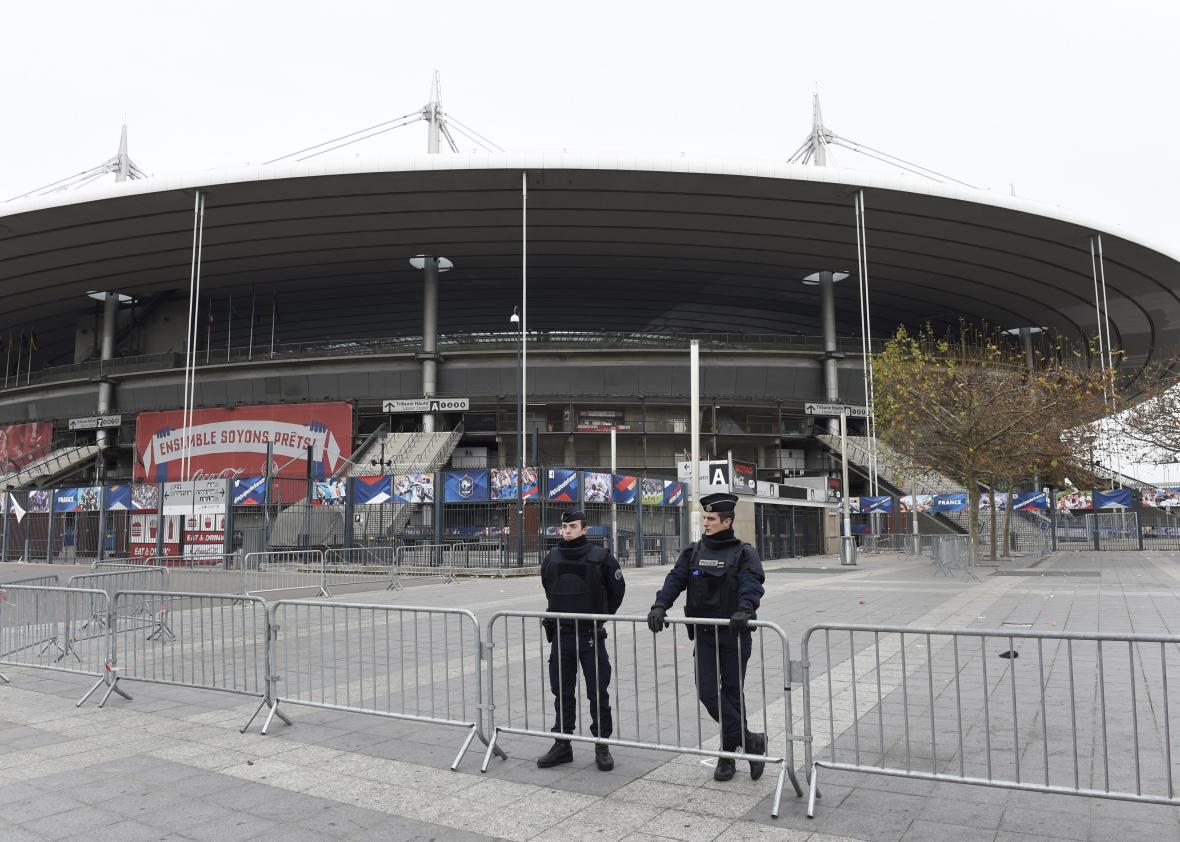Update, Nov. 18: On Wednesday, the French government announced that, “to avoid additional risks,” it would not allow large marches during the upcoming Paris climate summit. Nicolas Haeringer, a spokesperson for 350.org in France, one of the groups organizing the marches, said in a statement: “The government can prohibit these demonstrations, but it can not stop the mobilization and it won’t prevent us from strengthening the climate movement. Our voices will not be silenced.”
The original post follows:
For years, climate campaigners have been looking forward to the high-profile international climate negotiations in Paris, set to start on November 30, as an opportunity to press world leaders to change tack on climate change. It now appears at least some related events during the conference will be cancelled due to security concerns, but the main talks will go on.
On Monday, just days after horrific terrorist attacks in Paris killed at least 129 people, French Prime Minister Manuel Valls told a local radio station that the core talks would continue but “a series of demonstrations planned will not take place and it will be reduced to the negotiations … a lot of concerts and festivities will be cancelled.” In separate remarks on Monday, French President Francois Hollande emphasized the importance of the climate talks as “a time of hope and solidarity.”
Going forward with the talks in light of a major terrorist attack “sends a message to the people behind the attacks. The world is not going to stop for you,” said Ronny Jumeau, ambassador to the United Nations from the Seychelles, and a key climate negotiator for a group of small island developing countries.
The two issues are related. In a Pew survey of 40 countries earlier this year, climate change emerged as a top global concern, exceeding the threat of ISIS, especially in major developing countries like India, Pakistan, China, Brazil, South Africa and even Turkey, which shares a border with Syria. During this weekend’s Democratic presidential debate in Iowa, Bernie Sanders again called climate change the biggest risk to U.S. national security—and the science backs him up. The Pentagon has repeatedly called climate change a “threat multiplier.”
Though it now seems unlikely the official climate talks will be affected by the broad security crackdown implemented shortly after the attacks, including a ban on public demonstrations in parts of Paris, the heightened security measures will surely affect the spirit of the summit. As of Monday afternoon, the state of dozens of events related to the talks were still very much in flux. On Twitter, Jumeau said the organizers and potential attendees of those events “worriedly await clarification” from French officials on their status.
The climate talks themselves will take place at a secured venue in the Le Bourget section of Paris, in the northeast suburbs near Charles De Gaulle airport, about five miles away from where most of the attacks took place last week. The location will allow easy and secured access for the more than 100 heads of state expected to attend.
The climate talks, now in their 21st year, have a tradition of so-called “side events” that take place in parallel to the official bureaucratic wrangling and give an opportunity for nongovernmental organizations, religious groups, universities, and small groups of countries to have access to the delegates and inform/pressure the negotiations. The French government had previously designated a neutral area within the Le Bourget complex open to the general public called “Climate Generations,” which may now be closed. If that happens, it would severely limit the chances that delegates would be confronted by protesters, such as an activist “blockade” that had been in the works. It could also curtail some access to the talks by journalists. One journalist, with the South African Broadcasting Corporation, reported on Twitter that he, along with more than 1000 other journalists, was denied accreditation due to capacity concerns.
One particular unofficial side event, a business and technology summit called the Sustainable Innovation Forum that’s to be held in the Stade de France football stadium, the site of one of the attacks, will go ahead as planned, though with “a tightening of event security,” according to the organizers. Another event, a rally designed to echo last year’s “People’s Climate March” in New York City, is less certain. Organizers were anticipating as many as 200,000 demonstrators might attend.
“It’s our full intention for the march to go forward,” Jamie Henn, a spokesperson for 350.org, a group helping to organize the rally, told Slate. “If President Hollande declares a three-month state of emergency and the police are unwilling to provide any security, then it may be impossible — so negotiations continue.”
Given still-rising global emissions, the Paris talks have widely been referred to as a “last chance” in slowing humanity’s adverse impact on the climate. In September, Hollande said that if the talks fail to reach an ambitious agreement, “it will be too late for the world.” Should a security crackdown result in diminished pressure from the activist community, the chances for a bold climate agreement in Paris may now be reduced.
